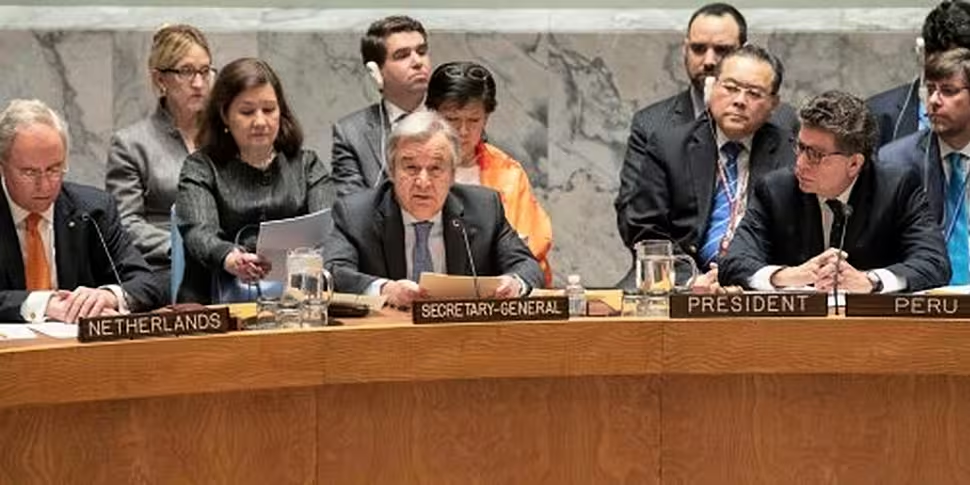The United Nations Secretary-General António Guterres has said the situation in Syria "represents the most serious threat to international peace and security".
In remarks to the Security Council in New York, he said: "I appeal to the Security Council to fulfil its duties and not give up on efforts to agree upon a dedicated, impartial, objective and independent mechanism for attributing responsibility with regard to the use of chemical weapons.
"I stand ready to support such efforts.
"Increasing tensions and the inability to reach a compromise in the establishment of an accountability mechanism threaten to lead to a full-blown military escalation."
He also said the Middle East region is facing "a true Gordian knot - different fault lines crossing each other and creating a highly volatile situation with risks of escalation, fragmentation and division as far as the eye can see with profound regional and global ramifications."
He compared this divide to others - such as the Cold War and the Palestinian-Israeli divide.
"The Cold War is back - with a vengeance but with a difference", he added.
Security Council stalemate
The UN Security Council has been unable to reach agreement over Syria.
Russia vetoed a US draft on Tuesday, which would have established a new investigative mechanism for one year - as well as identify those responsible for the use of chemical weapons.
A competing draft penned by Russia,which would have established the mechanism for one year as well but would have given the Security Council the responsibility to assign accountability for the use of chemical weapons in Syria, was also not adopted.
The Council rejected a third text – also proposed by Russia – which concerned the work of the fact-finding mission of the Organization for the Prohibition of Chemical Weapons (OPCW), the implementing body of the Chemical Weapons Convention (CWC), which entered into force in 1997.
US, UK and France
It comes as the leaders of the US, UK and France are due to hold more discussions on a response to the alleged chemical weapons attack.
Over 70 people died and a further 500 were injured in the town of Douma near Damascus on Saturday.
On Thursday, the cabinet of British Prime Minister Theresa May agreed action needs to be taken against the use of chemical weapons in Syria.
US President Trump appeared to roll back somewhat on his threat for a military strike against Syria, tweeting that action could be taken "very soon or not so soon at all."
It came after a previous tweet in which he warned Russia to "get ready" because US missiles "will be coming".
Syrian President Bashar al-Assad denies using chemical weapons against civilians.
The global chemical weapons watchdog, the Organisation for the Prohibition of Chemical Weapons (OPCW), has confirmed it will deploy a fact-finding mission to Douma "shortly."
It said it had asked the Syrian government to "make the necessary arrangements for such a deployment."









